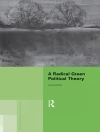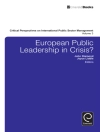Why do some attempts to conclude alliance treaties end in failure? From the inability of European powers to form an alliance that would stop Hitler in the 1930s, to the present inability of Ukraine to join NATO, states frequently attempt but fail to form alliance treaties. In Arguing about Alliances, Paul Poast sheds new light on the purpose of alliance treaties by recognizing that such treaties come from negotiations, and that negotiations can end in failure.In a book that bridges Stephen Walt’s Origins of Alliance and Glenn Snyder’s Alliance Politics, two classic works on alliances, Poast identifies two conditions that result in non-agreement: major incompatibilities in the internal war plans of the participants, and attractive alternatives to a negotiated agreement for various parties to the negotiations. As a result, Arguing about Alliances focuses on a group of states largely ignored by scholars: states that have attempted to form alliance treaties but failed. Poast suggests that to explain the outcomes of negotiations, specifically how they can end without agreement, we must pay particular attention to the wartime planning and coordinating functions of alliance treaties. Through his exploration of the outcomes of negotiations from European alliance negotiations between 1815 and 1945, Poast offers a typology of alliance treaty negotiations and establishes what conditions are most likely to stymie the attempt to formalize recognition of common national interests.
Paul Poast
Arguing about Alliances [PDF ebook]
The Art of Agreement in Military-Pact Negotiations
Arguing about Alliances [PDF ebook]
The Art of Agreement in Military-Pact Negotiations
Buy this ebook and get 1 more FREE!
Language English ● Format PDF ● Pages 258 ● ISBN 9781501740251 ● Publisher Cornell University Press ● Published 2019 ● Downloadable 3 times ● Currency EUR ● ID 8121236 ● Copy protection Adobe DRM
Requires a DRM capable ebook reader












